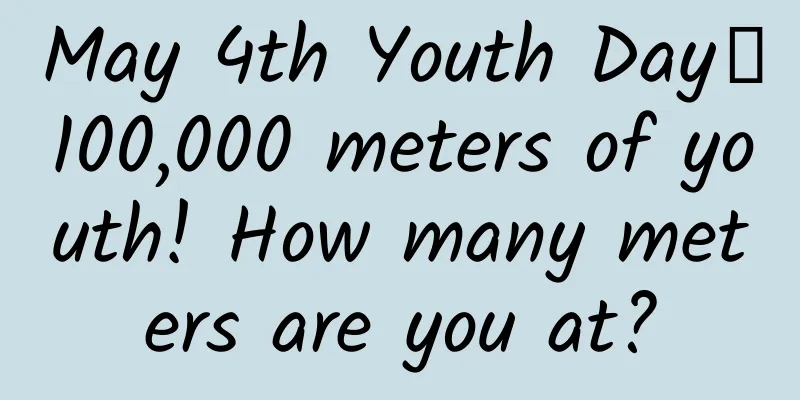Reminiscence! Translating “software” into “软件” was his masterpiece

|
Author: Hu Minqi He is a pioneer and trailblazer in China's software industry. He was the first computer expert to introduce the compilation system into China. The translation of the word "software" into "software" was his masterpiece. He is Xu Kongshi, a name that cannot be forgotten in the field of computer software in China. But even in the Internet age, there is very little personal information about Xu Kongshi. Software is the soul of the computer, and mathematics is the foundation of software. In his early years, Xu Kongshi studied in the Department of Mathematics at Tsinghua University. Standing on the three-foot-high podium were masters such as Zhao Fangxiong, Wang Zhuxi, Duan Xuefu, Min Sihe, Zhou Peiyuan, Hua Luogeng, Wu Xinmou, and Hu Zuchi. 70 years have passed. Xu Kongshi once recalled to Xu Zuzhe, a scholar of Chinese computer history, that when he was a freshman, he listened to Zhao Fangxiong's lecture on calculus in the 101 classroom of Tsinghua Academy. That classroom was the largest, with bright windows. When he walked into the ancient and heavy door of the academy and gently stepped on the trembling floor, he had a feeling of soaring. Until he started from scratch and supported the Institute of Software of the Chinese Academy of Sciences (hereinafter referred to as the Software Institute) in its early stage, that feeling gave him enough confidence, which was the academic nourishment and personality immersion from the masters. In the past 2021, the Institute of Software lost the 91-year-old founding director, but his character has been rooted in the hearts of generations of people in the Institute of Software. His humility and his laissez-faire attitude; his generosity and his selfless behavior; his tranquility and indifference, his indifference to the hustle and bustle... Xu Kongshi In 1981, Xu Kongshi (third from left) visited the German Center for Mathematics and Data Processing Research. “All conditions are in place, but it’s too late to start research” Before the reform and opening up, due to historical reasons and long-term isolation from the outside world, China's computer technology lagged far behind the world level. In order to open up channels for foreign exchanges, in the summer of 1972, Xu Kongshi, then assistant researcher at the Institute of Computing Technology of the Chinese Academy of Sciences (hereinafter referred to as the Institute of Computing Technology), visited Canada together with Huang Dejin and Zhang Xiu. After returning to China, they translated the word "software" into "软件" in the report they submitted. In the following years, there has been constant discussion in the country about "developing software technology and theory", but no major initiatives have been taken. It was not until 1980 that Klückberg, chairman of the German Research Center for Mathematics and Data Processing (GMD), led a delegation to visit China. He strongly suggested that China work hard to develop software and export it. Because software development can not only develop software technology itself, but also play a strong role in promoting economic development. Not long after, Xu Kongshi was commissioned by the Chinese Academy of Sciences to visit GMD's headquarters and several subordinate research institutes with a delegation, and conducted detailed inspections and investigations, which further strengthened the important position of software in the national development strategy. Over the next two years, the former State Science and Technology Commission, the former Ministry of Electronics Industry, and the Chinese Academy of Sciences organized several seminars to plan for the development of the computer software industry, and the establishment of a software research institute was also discussed. Up to this point, my country's computer software industry has been planned and laid out for more than ten years, and Xu Kongshi witnessed the entire process. In 1983, the Chinese Academy of Sciences applied to the former State Science and Technology Commission for the establishment of a software institute. Two years later, on March 1, the seal of "Software Institute of the Chinese Academy of Sciences" was put into use, marking the official establishment of the software institute. As the founder and founder of the Software Institute, Xu Kongshi started from scratch and went through a lot of hardships. In the past, when the Chinese Academy of Sciences established a new scientific research institution, it always started with basic construction - reporting plans, applying for funds, expropriating land, designing, constructing, and accepting, which often took several years. At the same time, a large amount of funds will be needed to transfer cadres, set up various departments, purchase office equipment and scientific research equipment, etc. The Institute of Software was “independent” from the Institute of Computing Technology. During the preparation period, there was no land and the basic construction problem could not be solved. 440,000 yuan of funds and two 16-bit microcomputers were all the assets of the institute in the first year. "Why did you separate from the Institute of Computing Technology under such difficult circumstances?" Many years later, Xu Kongshi was asked this question many times. "Even if all the conditions are in place, it's too late to start research." No one knows better than Xu Kongshi that China's software industry needs to catch up, develop faster, and take bigger steps. To this end, he shouted the slogans of "make the best use of everything and everyone's talents" and "everyone does their best and everyone gets what they deserve", and coordinated various resources on his own. In the impression of old colleagues, he is always able to resolve various conflicts with ease, allowing everyone to focus on their work with peace of mind. "The old director cares about our sufferings and is very humane. But when it comes to major issues, even when facing huge pressure, he never speaks against his will," said Yang Jun, a senior engineer at the software institute. In this way, a group of researchers will be willing to follow him to endure hardships and start a business. Xu Kongshi has served as the director of the Software Institute for nearly ten years. During this period, he has done a lot of work in building a talent team, planning research directions, formulating policies and measures, and reforming the operating system. He has led the institute's researchers to complete dozens of major national key scientific research tasks, laying a solid foundation for the future development of the Software Institute. “I am not qualified to be elected as an academician” In the software institute, everyone prefers to call Xu Kongshi "Lao Xu". Lao Xu has always been gentle and well-known for his good temper. Once, Cao Youqi, then Secretary-General of the Chinese Society for Chinese Information Processing, had just opened the door of his office when he heard someone in the corridor loudly "criticizing" Lao Xu, and his heart trembled. "I'm really disappointed with him. Lao Xu was a top student at Tsinghua University and a disciple of Hua Luogeng. He should have been able to do many things." But Lao Xu spent all his time on scientific research management and no longer focused on his business, which made this outspoken senior scientist very dissatisfied. "You don't have to comfort me. There is some truth in what he said." Lao Xu was not unhappy at all. More than one person felt sorry for Lao Xu's transformation as a scientist. But in the turbulence of the times, mission is more important than choice. Sometimes, giving up is also a kind of responsibility. For Lao Xu, it is not himself who carries his academic ideals, but the entire software research and development. In the early days of the software institute, it had well-known computer industry figures such as Hu Shihua, Tang Zhisong, Dong Yunmei, and Zhou Chaochen, as well as a group of elite soldiers under it. In order to expand the research force as quickly as possible, Lao Xu also introduced a number of overseas returnees from the United States and the United Kingdom. Each of them has unique skills and different personalities. They were able to focus on their work and settle down in the software institute where there was neither people nor money at the time, thanks to Lao Xu, who was their "stabilizing force". In the late 1980s and early 1990s, scientific research institutions collectively responded to the call of the country and faced the main battlefield of the national economy. In order to create benefits, the research institutes were under great pressure. "We must follow the trend and create benefits for the country, but we must also resist some excessive trends and protect basic research." Lao Xu suggested that the software institute should "stabilize one end and let go of the other." Not only did he not put pressure on the Basic Research Laboratory, he also announced to the entire institute: "No one is allowed to make the Basic Research Laboratory feel irritated." It may have seemed inappropriate at the time, but today no one would deny that basic research is the foundation of the Institute of Software. In order to develop basic research, Lao Xu is committed to creating a relatively relaxed academic environment and free space for scientific researchers. "Lao Xu fully respects all viewpoints and schools of thought and never suppresses them. Even if only one person is interested in this research direction, he will support him to do it independently without anyone being in charge," said Cao Youqi. It was precisely with such a cultural soil that the Institute of Software quickly began to prepare for the establishment of the National Key Laboratory of Computer Science. Facts have proved that the National Key Laboratory of Computer Science is an extremely critical strategic deployment in the development history of the Software Institute, and it has always been an indispensable and important force in domestic computer science and software theory research. Under the leadership of Lao Xu, a group of software research talents stepped onto the stage of Chinese computer software science. As the head of a school, he never mentioned himself. Feng Yulin, the second director of the Software Institute, worked with Lao Xu for many years and they never had a quarrel. The only conflict between them occurred in 1994. The institute decided to recommend Lao Xu as a candidate for the Chinese Academy of Engineering, and even reported the materials to the Chinese Academy of Sciences without prior approval. Later, the news was "leaked", and Lao Xu angrily found Feng Yulin and asked him why he did this. "If I tell you, then this matter can't be done, right?" Feng Yulin said helplessly. Everyone in the institute knew that Lao Xu was a modest gentleman and would never agree to the application. "I am not qualified to be nominated for academician. Old Feng, if you don't withdraw the materials today, I will sit here and not leave." Feng Yulin had never seen Old Xu get so angry, and there was nothing he could do except send someone to withdraw the materials. Lao Xu is a low-key person who does not follow the crowd. His colleagues have been influenced by him and have also shaped the unique temperament of the institute. Feng Yulin believes that people at the Software Institute are not high-profile and do not follow trends. Instead, they are all down-to-earth and focus solely on scientific research. "There is no fault with Lao Xu's character" It has been 25 years since Lao Xu left his front-line job, but his influence still exists. Even if the new young people have never met him in person, they have more or less heard his stories. In the early days of reform and opening up, Lao Xu often visited foreign countries. At that time, people who went abroad could receive some allowances, which was a considerable income, but Lao Xu's allowances hardly went into his own pocket. He would either buy some necessary books and magazines, or keep the money as a working fund to use when needed, and sometimes use it as party dues. He even had to borrow a coat from a friend when he went abroad. His old colleagues all knew that he had a gray windbreaker that he had worn for more than ten years. Once, Lao Xu took off his coat, revealing a sweater with many holes worn from the cuffs to the arms, but he was still reluctant to throw it away. For a period of time, in order to help his colleagues learn English, Lao Xu bought Lingophone records and phonographs. He used the time at noon and before getting off work every day to let everyone listen and learn. Many of his colleagues started learning English from here. At that time, a phonograph cost 96 yuan, which was a huge sum of money. Lao Xu remembered the birthdays of every employee in the institute at that time. Many people received blessing calls from Lao Xu on their birthdays, including Gu Yuqing, a researcher at the Institute of Software. "Sometimes even we forget, but Lao Xu still remembers." He kept this habit for a long time. As a Beijinger, Lao Xu loves Peking Opera. Whenever foreign experts visit, he always pays for them to have tea and watch operas out of his own pocket. "How much do you earn a month? How can you bear so many activities like this?" His colleagues were worried about him, but Lao Xu still "did his own thing". At the end of 1986, Sun Simin, who was still a young technician at the software institute, was transferred to the position of general manager of the software development company. Due to his lack of experience, he was involved in a lawsuit, which made the company, which was just starting out, even worse. "But Lao Xu not only did not blame me, he also comforted me by saying that he had some antiques left by his ancestors at home. If the company lost the lawsuit, he would sell them to support the company and prevent the institute from suffering losses." Many years later, in order to help the company through the difficult times, Sun Simin did not hesitate to mortgage his own house because of Lao Xu's example. "There is nothing to fault about Lao Xu." This is what colleagues and friends mentioned most often when recalling him. "It's easy to be a good person temporarily, but it's hard to be consistent in any situation," said Sun Jiachang, a researcher at the Institute of Software. "Mr. Xu has his own standards for being a good person." Lao Xu is no longer with us, but his style of dealing with people is deeply engraved in the hearts of generations of people in the software institute, and has become their eternal spiritual coordinates. China Science Daily (2022-02-24 Page 4, original title: "The Man Who Named the Software") Editor | Zhao Lu Typesetting | Guo Gang |
<<: Is the pangolin the real-life version of "Wolverine"?
>>: 996 is not a joke. Working more than 55 hours a week may be life-threatening!
Recommend
Here’s a guide to writing good headlines and copy
When we write soft articles for public accounts ,...
The little things you ignore on the road cause more than 8,000 deaths every year
An eMule is indispensable on the road to success ...
How to build user portraits, 4 methods!
As a very common design tool, user portraits alre...
Android Studio 1.0 RC released
Android Studio 1.0 RC is released and available i...
DianTao APP Product Analysis
Let’s first answer a core question: who does live...
iOS 14.5 RC version update: Added unlocking with mask, supports the latest AirTag
After Apple’s 2021 Spring Conference a few days a...
17 psychological phenomena that planners and promoters must know in 2020
Consumer insights , which marketers often talk ab...
90% of copywriters often make these three mistakes. Have you made any of them?
The three most common mistakes in many advertisin...
Sales Big Player-Management Routine You Don't Know Baidu Cloud Download
Sales Big Players-Management Routines You Don’t K...
Can I visit the cemetery during the Qingming Festival this year? What are the rules for visiting graves? Attached are the latest regulations for various regions in 2022!
April Fools' Day is held on April 1st. It is ...
How to improve ROI? Internet marketing combination methodology!
This article will focus on the general Internet m...
"Chinese Tales" goes viral! Let's take a look at the little-known facts in Langlang Mountain
Coinciding with the 2023 New Year's Day holid...
The secret of the world's first wooden tower standing for a thousand years
If you were asked to guess which province in my c...
Information flow advertising is so popular, how should we play it? (In-depth information)
This article takes you to explore the following i...
How can the elderly exercise healthier? The key is to do these five things
This is the 5019th article of Da Yi Xiao Hu Real ...









